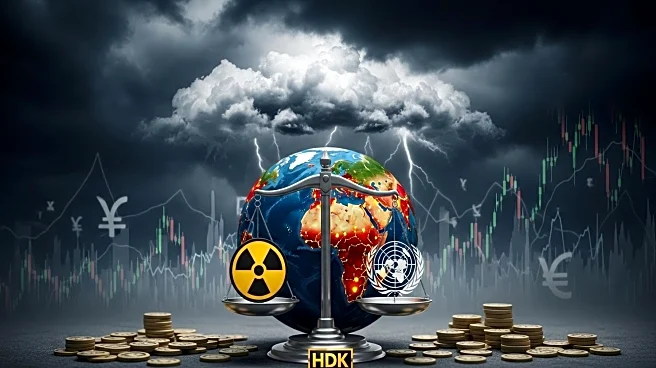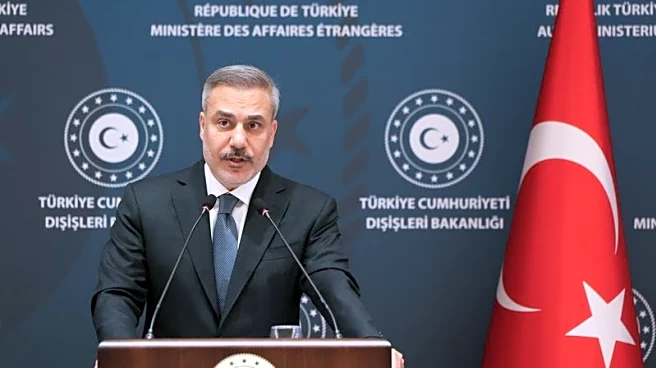What's Happening?
Iran is facing the prospect of United Nations sanctions due to its nuclear program, which could be declared illegal under Chapter Seven of the UN Charter. The sanctions, if reinstated, would recognize Iran as violating international laws. The European Union has indicated it will reimpose sanctions unless Iran allows UN nuclear inspectors full access to all nuclear sites. The sanctions primarily target Iran's military and nuclear industries, imposing restrictions on the buying and selling of weapons and calling for greater oversight of Iran's transactions. The Iranian government is divided on how to respond, with some radicals in parliament proposing withdrawal from the nuclear non-proliferation treaty. The situation follows a 12-day war with Israel that left Iran's nuclear program largely destroyed.
Why It's Important?
The potential UN sanctions could have significant economic repercussions for Iran, exacerbating existing challenges. The sanctions are expected to impact Iran's military and nuclear sectors, potentially limiting its ability to develop these industries further. Economically, the sanctions could lead to a devaluation of Iran's currency, infrastructure failures, increased poverty, and social crises. The sanctions also carry political implications, as they could intensify internal divisions within Iran's government and society. The broader geopolitical impact includes heightened tensions between Iran and Western countries, particularly those involved in the snapback procedure, such as the UK, France, and Germany.
What's Next?
Iranian diplomats have indicated they will outline potential reprisals if European powers proceed with reimposing sanctions. The Iranian government faces internal pressure to make concessions demanded by European governments, but hardliners are resistant. The decision to withdraw from the nuclear non-proliferation treaty could lead to significant internal political battles. Meanwhile, European diplomats are preparing for the snapback procedure, briefing fellow diplomats on its implementation. The situation remains fluid, with potential for further diplomatic negotiations or escalation.
Beyond the Headlines
The looming sanctions highlight the complex interplay between international diplomacy, domestic politics, and economic stability. Iran's resilience in the face of past sanctions is a point of national pride, but the current situation poses new challenges. The potential for increased poverty and social unrest raises ethical concerns about the impact of international policies on civilian populations. The geopolitical dynamics also underscore the ongoing tensions in the Middle East, with Iran's foreign policy and relations with Israel at the forefront.










